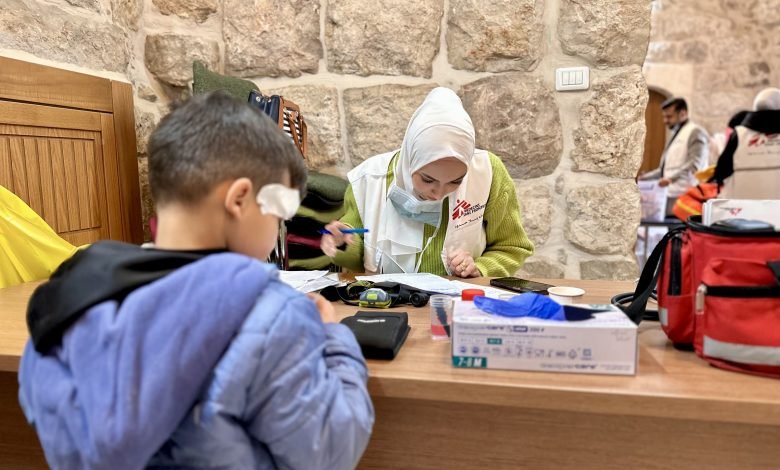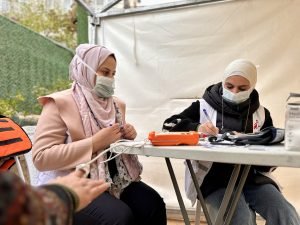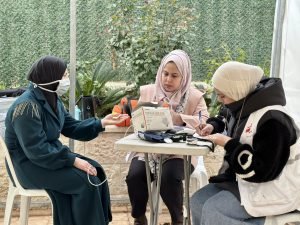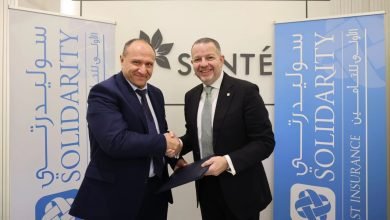
By : JD
Jordan Daily – The residents of Hebron’s H2 area, one of the most heavily restricted regions in the West Bank, are seeing their access to healthcare severely compromised as Israeli occupation measures intensify, particularly since the start of the war on Gaza, aid group Médecins Sans Frontières (MSF) said on Monday.
MSF, which was forced to suspend operations for several months in H2, warned in a statement that both the physical and mental health of the population is deteriorating.
Restrictions imposed by Israeli forces have escalated across the West Bank, including Hebron, since the war on Gaza began. In December 2023, citing security concerns, Israeli authorities ordered MSF to suspend its operations for over five months in the Jaber neighbourhood inside H2.
To compensate, MSF opened a mobile clinic near Jaber, outside the checkpoint and in Tel Rumeida, an area accessible to those who could leave H2. However, few were able to reach it.

“Although we are now able to provide care in the MSF clinic in Jaber neighbourhood, access remains challenging as our staff can be searched and delayed at the checkpoints to enter the H2 area,” said MSF project coordinator Chloe Janssen. “Access to medical care should never be arbitrarily denied, impeded or blocked.”
The mobile clinic frequently faces interruptions, with staff being barred from entering or movement being restricted, particularly during Israeli public holidays. Normally, MSF provides mobile clinics in H2 twice a week, treating around 60 to 70 patients per session. From September to November 2024, MSF had to cancel 7 out of 26 scheduled clinics.
The disruption has severely impacted the community’s access to critical healthcare. Due to prolonged restrictions, violence, and harassment, MSF has noted a dramatic decline in children’s mental health. Many children are displaying symptoms of trauma, including hyperactivity, bed-wetting, nightmares, and academic difficulties, MSF said.
“Palestine isn’t a case of post-traumatic stress disorder (PTSD) because the trauma never ends. Here, we’re talking about continuous and complex trauma. The entire population is affected,” said Lucia Uscategui, MSF’s Mental Health Activity Manager. “Even if the conflict and occupation ended tomorrow, the consequences would linger for years. But our work is about showing people they are not alone- that there is still some hope, even in the darkest times.”

MSF called on Israeli forces to cease implementing measures that prevent Palestinians from accessing basic services, including medical care.
The H2 area of Hebron, comprising about 20% of the city, is home to around 7,000 Palestinians and several hundred Israeli settlers- the only instance of settlers living within a Palestinian city in the West Bank. The area is under strict movement regulations, systemic closures, and continuous violence, with MSF providing primary healthcare and mental health support to Palestinians affected by these conditions.
“Israel must take all feasible measures to ensure that medical care remains unobstructed and accessible,” MSF said. “Access to medical care must never be arbitrarily denied, impeded or blocked.”

